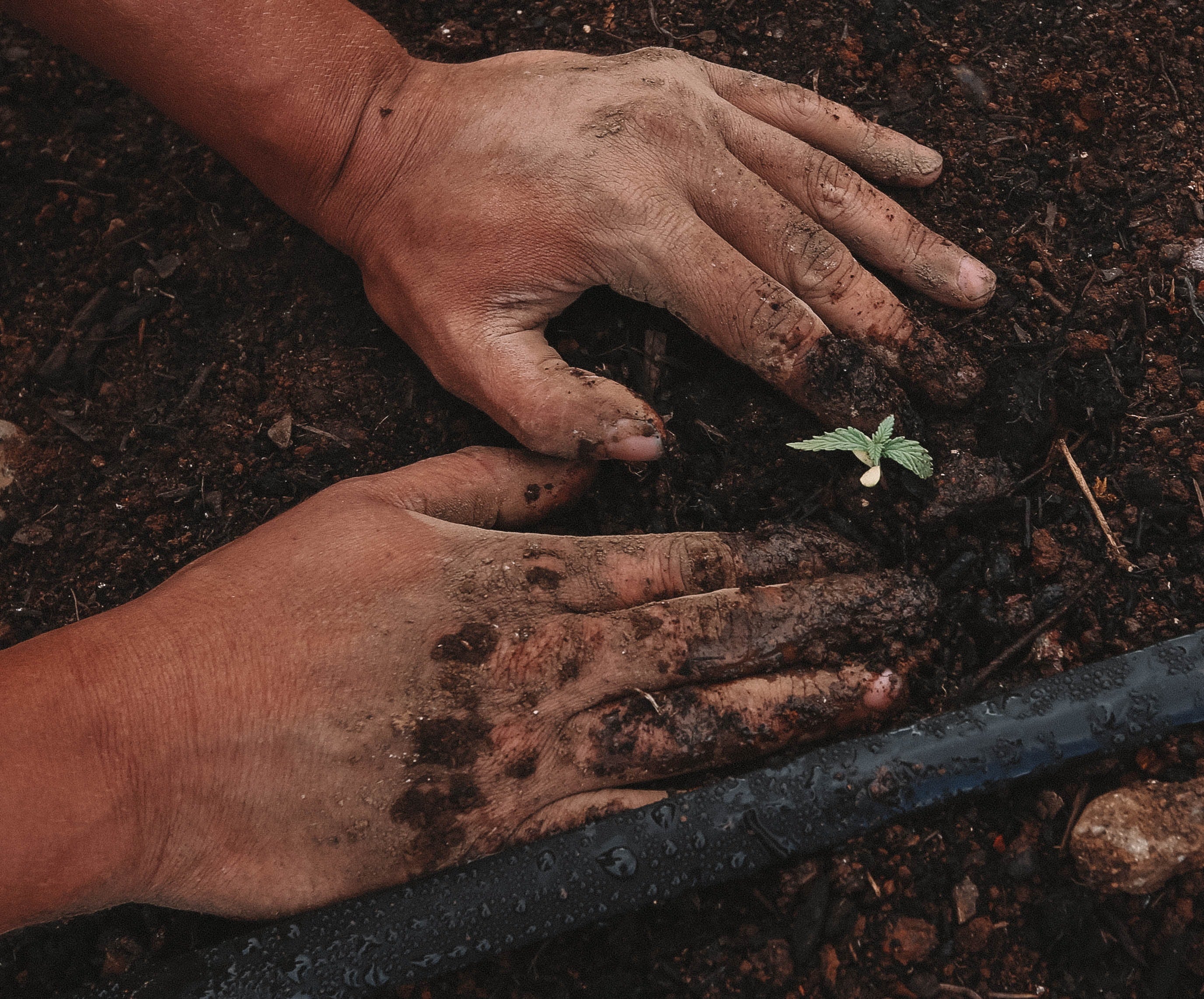

When it comes to gardening, many people are turning toward organic practices, especially those interested in survival gardening. Organic gardening isn't just a trend; it's a sustainable way to cultivate crops that can contribute to your food security in uncertain times. In this article, we'll dive into the benefits of using organic gardening methods in a survival garden and explore how these practices can help you grow healthy, nutrient-dense food without harmful chemicals.
What is Organic Gardening?
Defining Organic Gardening
Organic gardening refers to a method of gardening that relies on natural processes and materials to cultivate plants. This approach avoids synthetic fertilizers, pesticides, and genetically modified organisms (GMOs) according to toddsseeds.com. Instead, organic gardeners use compost, natural pest control methods, and crop rotation to maintain soil health and productivity.
Why Choose Organic Gardening?
Choosing organic gardening methods is not only beneficial for your health but also for the environment. By avoiding synthetic chemicals, you reduce the risk of contaminating the soil and water, promoting biodiversity, and enhancing the ecosystem's overall health.
Benefits of Organic Gardening in a Survival Garden
1. Healthier Food Production
One of the primary benefits of organic gardening is the production of healthier food. Organic vegetables and fruits are often richer in vitamins, minerals, and antioxidants compared to their conventionally grown counterparts according to the National Library of Medicine. This nutrient density is crucial for maintaining your health, especially during challenging times when access to a variety of foods may be limited.
Nutritional Advantages of Organic Produce
Studies have shown that organic produce can have up to 50% more antioxidants than non-organic produce. These antioxidants help protect your body from free radicals, reducing the risk of chronic diseases. Additionally, organic gardening methods often focus on building soil health, which further enhances the nutritional profile of the crops grown.
2. Environmental Benefits
Organic gardening significantly benefits the environment. By utilizing natural gardening methods, you promote soil health, conserve water, and reduce pollution.
Soil Health and Biodiversity
Organic gardening emphasizes the importance of soil health through practices like composting and mulching. Healthy soil is teeming with beneficial microorganisms that contribute to nutrient availability and disease resistance in plants. Additionally, organic gardening supports biodiversity by creating habitats for beneficial insects, birds, and other wildlife.
Water Conservation
Organic gardening methods often involve techniques like drip irrigation and mulching, which help conserve water. These practices minimize water waste and ensure that plants receive consistent moisture, making your garden more resilient during dry spells or droughts.

3. Cost-Effective Solutions
Starting a survival garden can seem daunting, especially if you're concerned about the costs associated with gardening supplies. However, organic gardening can be incredibly cost-effective in the long run.
Utilizing Homemade Fertilizers and Pest Controls
Instead of purchasing expensive fertilizers and pesticides, organic gardeners can create their own solutions using everyday household items. For example, composting kitchen scraps and yard waste creates nutrient-rich compost that enriches the soil. Likewise, homemade pest repellents made from ingredients like garlic, soap, or neem oil can effectively manage pest issues without breaking the bank.
Saving Seeds
Another cost-effective aspect of organic gardening is saving seeds from your harvest. Many organic gardeners save seeds from heirloom plants, ensuring a continual supply of crops without the need to purchase new seeds each year. This practice not only saves money but also helps preserve plant diversity.
4. Resilience Against Pests and Diseases
Organic gardening fosters a natural balance in the ecosystem, which can enhance your garden's resilience against pests and diseases. By encouraging beneficial insects like ladybugs, and lacewings, you create a natural pest control system. Another benefit to your survival garden would be to implement bat houses because bats are very good natural pest control and misunderstood animals, according to the U.S. Fish and Wildlife Service.
Companion Planting
Companion planting is a popular organic gardening technique where certain plants are grown together to benefit one another. For example, planting marigolds alongside tomatoes can help repel pests while attracting pollinators. This method not only protects your crops but also promotes biodiversity in your garden.
Crop Rotation
Implementing crop rotation is another effective organic gardening strategy. By rotating your crops each season, you can prevent the buildup of pests and diseases associated with specific plants, ultimately leading to healthier and more productive plants.
5. Enhanced Flavor and Quality
Organic produce is often celebrated for its superior taste compared to conventionally grown food. When you nurture plants with organic methods, you allow them to develop their natural flavors fully.
Taste Test: Organic vs. Conventional
Many gardeners and consumers alike agree that organic fruits and vegetables taste better. This is partly due to the nutrient-rich soil and the absence of artificial growth enhancers that can dilute flavor. By growing your food organically, you can enjoy the satisfaction of eating high-quality produce that bursts with flavor.
6. Empowerment and Knowledge
Engaging in organic gardening can be empowering, especially in the context of survival gardening. When you grow your own food using organic methods, you gain a deeper understanding of the food system, from seed to harvest.
Learning Opportunities
Organic gardening provides ample opportunities for learning and experimentation. You'll discover the importance of soil health, plant nutrition, and pest management. This knowledge can be invaluable in a survival situation, where food security relies on your ability to cultivate crops successfully.
Community Building
Organic gardening often fosters a sense of community among gardeners. Sharing tips, seeds, and harvests with neighbors and friends can create a support network, making it easier to thrive in a survival gardening scenario.

Unlock Your Survival Garden with Seed Armory's Organic Heirloom Seed Vault Kits!
Are you ready to take your gardening to the next level?
Seed Armory’s Fall Vault is the perfect solution for anyone looking to grow their own food sustainably and organically!
What’s Inside?
Our Fall Vault contains 27 varieties of organic, 100% heirloom seeds, handpicked for their resilience and flavor. These seeds are perfect for fall planting and will provide you with a bountiful harvest throughout the season.
Why Choose Heirloom Seeds?
Heirloom seeds are known for their superior taste and ability to adapt to local climates. By choosing our organic heirloom seeds, you're not just growing food; you're cultivating a sustainable future! Our seeds are non-GMO, ensuring that you’re nurturing your plants without any harmful chemicals.
Grow Your Own Food Security!
In today’s world, having the ability to grow your own food is more important than ever. With our Fall Vault, you can start a thriving survival garden right in your backyard! Whether you’re an experienced gardener or a beginner, these seeds will help you create a vibrant, healthy garden that can sustain you and your family.
Easy to Use
Our seed vault kits come with everything you need to start your gardening journey. With easy-to-follow instructions and planting tips, you'll be enjoying fresh produce in no time!
Limited Stock Available!
Don’t miss out on the opportunity to secure your very own Fall Vault. Stock up on these invaluable seeds and ensure your garden flourishes season after season.
Order Now at Seed Armory and get ready to transform your garden with organic heirloom seeds!
Getting Started with Organic Gardening in Your Survival Garden
Choosing the Right Location
When establishing your survival garden, the first step is selecting a suitable location. Look for a spot that receives at least six hours of sunlight daily, according to cornerstoregarden.com, and has good drainage. If you're working with limited space, consider container gardening or vertical gardening methods.
Soil Preparation
Preparing your soil is crucial for a successful organic garden. Start by testing your soil's pH and nutrient levels to determine any amendments needed. Adding organic matter, such as compost or well-rotted manure, can improve soil structure and nutrient content.
Selecting the Right Crops
Choose crops that are well-suited for your climate and growing conditions. Heirloom varieties are a fantastic option for organic gardening, as they are often more resilient and flavorful. Additionally, consider growing a mix of vegetables, herbs, and fruits to maximize your garden's productivity and nutritional diversity.
Implementing Organic Practices
As you grow your survival garden, remember to incorporate organic gardening practices. Use natural pest control methods, apply compost as fertilizer, and practice crop rotation. Regularly monitor your plants for signs of pests or diseases, and address any issues promptly.
Embrace Organic Gardening for a Thriving Survival Garden!
Organic gardening methods offer a wealth of benefits for those looking to establish a survival garden. From producing healthier food to promoting environmental sustainability, organic practices empower gardeners to cultivate nutritious crops while fostering a deeper connection to the land. By embracing organic gardening, you can not only enhance your food security but also contribute positively to the environment and your community.
So, whether you're a seasoned gardener or just starting your journey, consider the many advantages of organic gardening in your survival garden. With a little patience and dedication, you'll be well on your way to growing your own healthy, organic produce for years to come!






